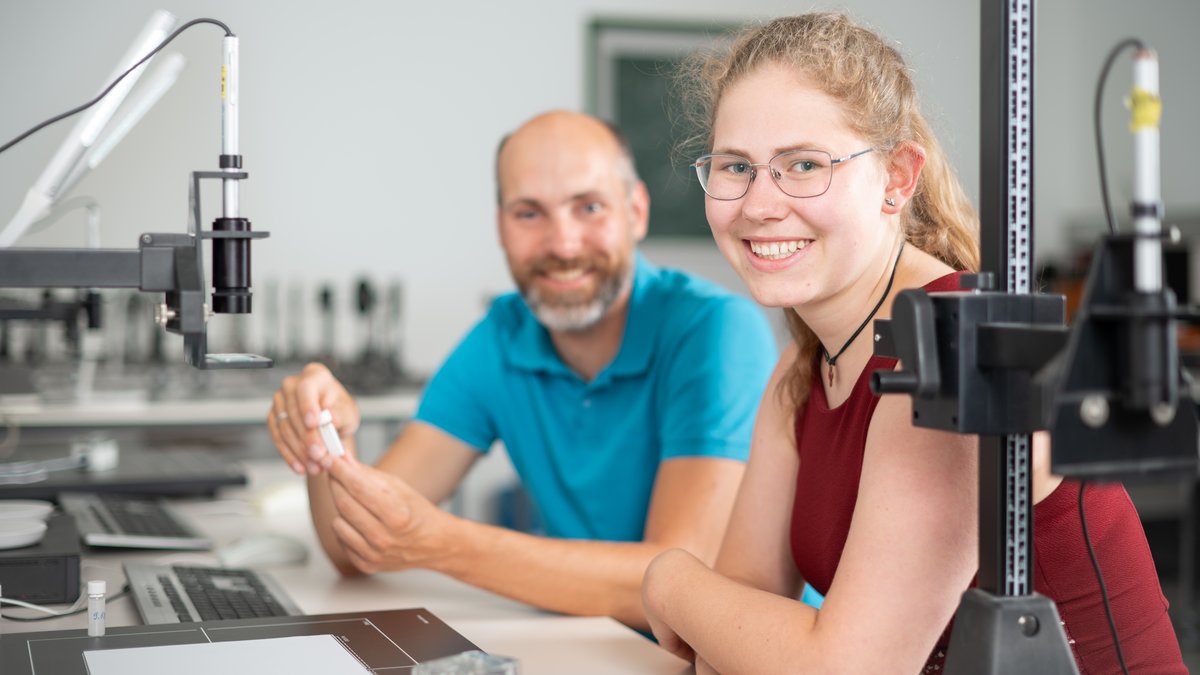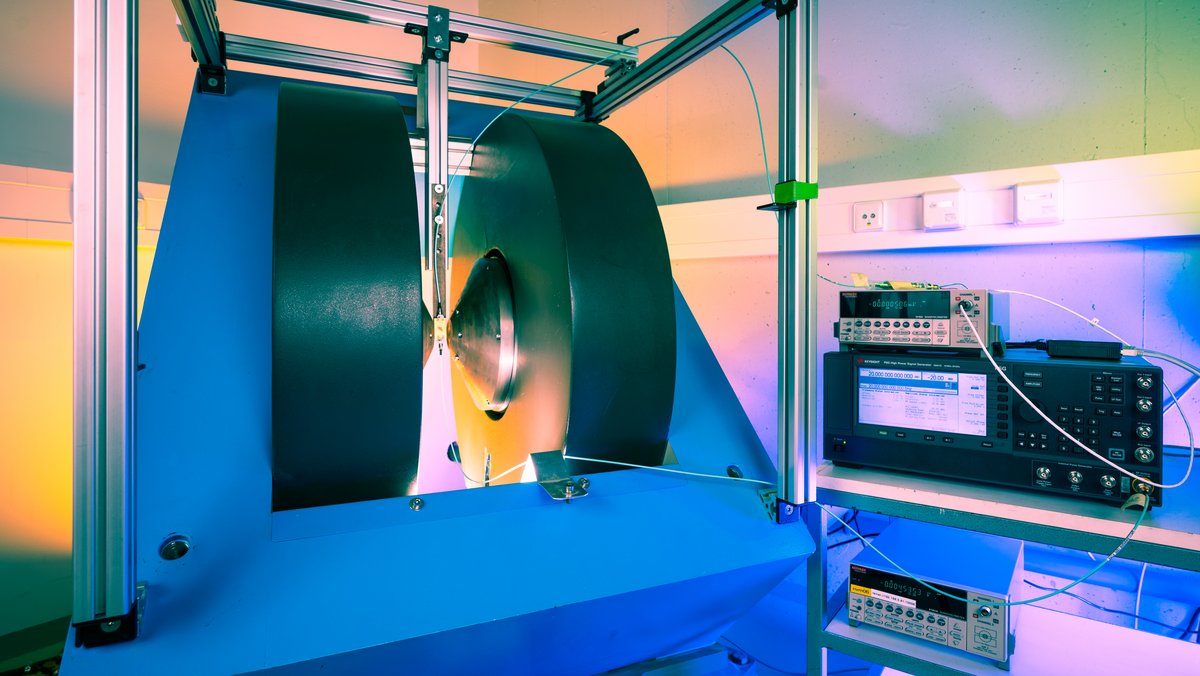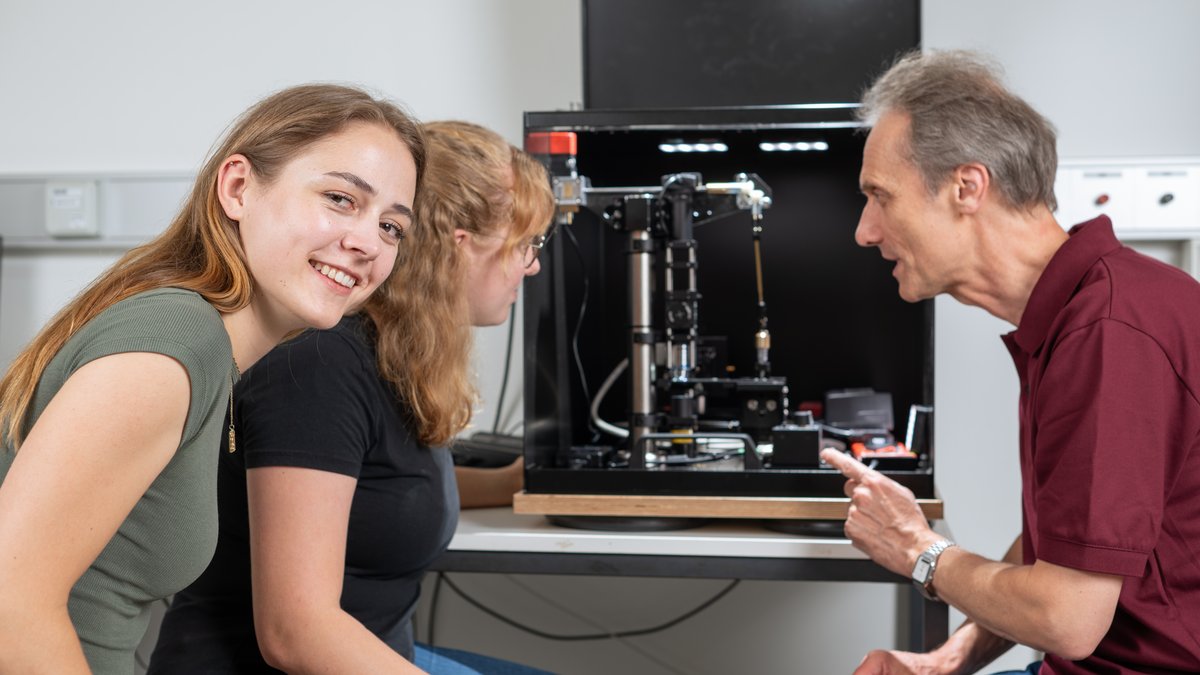Study physics in Konstanz? This means an exciting three-year programme with excellent supervision and teaching at an attractive location. After learning the basics of physics at the highest level, you have the opportunity to set your own priorities and to participate in current research.
Special about Konstanz
- preparatory course for an easy transition from school to university
- interlinked experimental and theoretical physics in the integrated course
- excellent student-teacher ratio, small groups and open-door culture
- individual support during your bachelor thesis
- first steps in research
- various ways to go abroad
- fantastic location between Lake Constance and the Alps
Overview
| Degree | Bachelor of Science |
|---|---|
| Programme start | Winter semester |
| Period of study | 6 semesters |
| Application period | 9.5. - 15.9. |
| Admission restrictions | no |
| ECTS | 180 |
| ⌀ Number of students | 80 |
How to apply?
If you would like to join one of our physics study programmes, simply apply online. Find out more about applying to a bachelor's programme from the Division of Student Affairs and Teaching.
Application periods
You may apply starting mid-May (mid-December) for the winter and summer semesters respectively. You may even apply up to the start of the semester. The current deadlines are listed on the Student Affairs and Teaching pages.
Language skills
International applicants need to provide the Department of Physics with documentation of their German language skills. We require level DSH-1 or TestDaF 3 or an equivalent language test. Since the University of Konstanz does not offer its own preparatory German language courses or approved German language exams, you must submit the required proof of your German language skills along with your application.
Further information
The Student Affairs and Teaching website provides detailed information on the application and enrolment process. If you have any further questions, you can contact either Student Affairs and Teaching or the Department of Physics at any time.
Why physics?
Physics is a broad scientific field that focuses on understanding the forms of matter ranging over all size scales in combination with fundamental forces of nature. Physicists typically use fundamental phenomena to develop new measuring methods and theoretical concepts as well as to model complex processes with computers. The field is generally divided into “experimental physics” and “theoretical physics”, which includes the fast growing field of “computational physics”. Physics plays a crucial role in forming our future, since it both lays the foundation for other natural sciences and supplies ideas for new technologies.
Physics graduates are in demand in various fields. Your career options range from "traditional" work in basic and industrial research to teaching at schools and universities and working in manufacturing, marketing, planning, analysis, management, consulting, support and controlling. Nowadays, physicists work in nearly every setting that requires analytical and systematic skills - in businesses, research institutes, consulting companies, and patent management. You will have a lot of options, after you have honed these skills step-by-step in the course of your studies.
What does a physics lecture look like?
The following links lead to two recordings of lectures from the first semester. The lectures are in German.
How is the study programme structured?
The standard period of study for the Bachelor's degree is six semesters. During the first four semesters you learn the basics of theoretical and experimental physics in the lectures of the Integrated Course (IK), which are supplemented by exercises and physics lab courses. In addition, there are lectures in mathematics and minor subjects. You can choose the minor subjects from a wide range of courses offered by other departments. The fifth semester consists of lectures on solid state physics, nuclear physics and either higher quantum theory or statistical mechanics, as well as more complex experiments in the advanced physics lab. During the last semester of the Bachelor's degree, you participate in research in one of the working groups at the department and write your Bachelor's thesis.
The curriculum provides an overview of the courses and lectures that make up the degree programme. In addition, you will find more detailed descriptions and contents of the individual courses in the module guide.
What can you do with a physics degree?
With a degree in physics, many paths are open to you. Alumni typically work in the following areas:
- basic and industrial research
- teaching at schools and universities
- software industry
- management consultancy, financial sector
- automotive industry, chemistry, electrical engineering, photonics
- medical technology, mechanical engineering, engineering office
Further information on career prospects can be found here.






